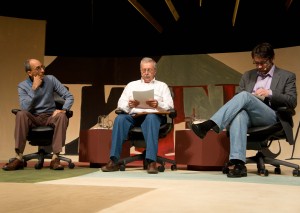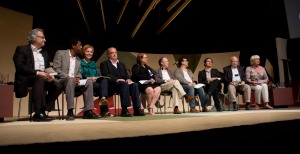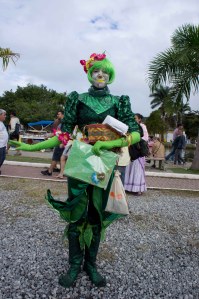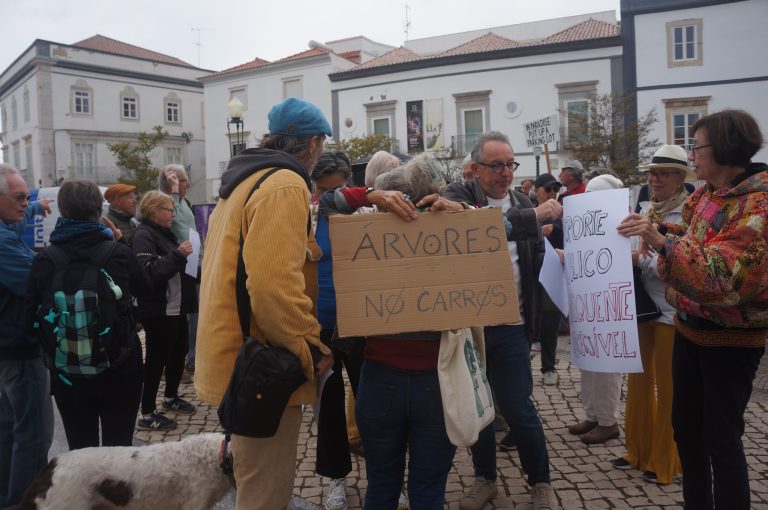Paraty, Day 5 – final day
As I write this, it is raining in Paraty. It is still beautiful, but its cold. The weather also occupied the mind of one of the writers I saw on day 5. Hanif Kureishi, (English mother, Pakistani father), grew up in Britain in the 1970’s. He said he “started writing to stop going mad”. He was racially abused daily as a child with the neighbours asking him at times “is it warm enough for you” or “where are you from”. and as he pointed to the house in the street the neighbour would say “no where are you really really from” as though the double use of really would mean more. He said “I wrote to explore where the fuck I am from and if it is warm enough”.
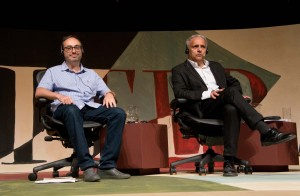
This idea of place and identity permeated the day. Gary Shteyngart shared the platform with Hanif and the contrast between their approach to literature was self-evident. Gary the satirist and Hanif the professional money on the table writer did share a few things in common. They both teach creative writing and thought this was of value for a writer in terms of structure and focus. As you would expect from a satirist, Gary is very funny in front of an audience. He said ” it was not much fun growing up in the Soviet Union” and then being transported to the USA in the late 70’s, where Russians were hated (even in Hebrew school). He pretended to be Easter European. They both talked about the experience of writing about sex with Gary saying he began writing about sex as he was not having any and finally at 37 and 20 yrs of psychoanalysis someone did agree to have sex with him. Hanif, the author of My Beautiful Launderette and the Buddha of Suburbia, was asked about his “intertextual reworking” of a short story about a man detached from his Penis.
The Nose was an original story by the Russian writer Nikolai Gogol. It revolves around a self-important Russian who wakes up one day to find that his nose has left his face to make its own way in the world. Hanif reworked the Nose into a Penis. His editor at the time wanted to leave out that story from the collection of short stories, you will be sorry he said. “He was right” Hanif joked. Outsourcing and reworking of books is and will be more the domain of India, Gary observed. “I now just outsource everything there, so I have no idea what I write”. They both talked about the rise of Fundamentalism which led into a discussion of Gary’s book Absurdistan which chronicles the adventures of Misha Vainberg, the 325-pound son of the 1,238th-richest man in Russia, as he struggles to return to his true love in the South Bronx.
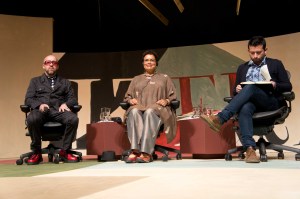
Jackie Kay was a refreshing voice at Paraty. She is a Scottish writer/poet, born of an English mother and Nigerian father. She shared the platform with Fabrico Carpinejar who is a poet and journalist. He spent a good deal of time explaining why ugliness is a gift and why as a child he used various creams to try to made himself invisible.
The audience listened in silence as Jackie described that she was adopted in 1961 and why she writes about finding family and identity. She discovered that although she had written about the Ebo tribe it was not till later that she found out she was Ebo. She located her father by googling him. He is a leading ethno-biologist in Nigeria. A tree specialist. Which was somewhat ironic given that she was trying to discover her family tree.
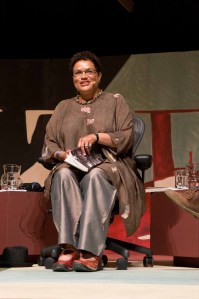
She met him at 42. He welcomed her to Nigeria, singing and dancing. He said “God already knows you – all you must now do is accept Christ”. He was barking mad she said. “I discovered later his dancing was part of a cleansing ceremony for his past sin” – the sin being the daughter standing in front of him. Along her journey of discovery she found a Mormon mother who also did not want to acknowledge her publicly and it was only through her writing that her sisters discovered her and made contact. Both writers have particular local accents and this they felt was also important to discovering their identity. Some of Jackie’s books including The Adoption Papers can be found on Amazon books here
One of the sessions on day 5 was called “Imagination and Engagement”. In this session two of Brazil’s major contemporary writers, Rubens Figuerido and Francisco Dantes, talked with Joao Cezar de C. Rocha. Francisco Dantes talked about how surprised he was to be chosen to be at Paraty. He explained what the two words imagination and engagement meant to him. In particular “imagination should not be confused with delusions or digressions that could go into madness. Imagination in literature is different” he said “It is a symbolic expression of what you know”. “Engagement in Brazil” he said was an old Stalinist class concept from the 40’s. So when Sartre talked about Engagement, it was already understood. Literature had already worked free from the party line. Rubens Figuerido, a teacher and translator of Russian novels also picked up the themes of class and struggle. His book “Journey at the end of the day”, chronicles a young man’s struggle with a different world he sees around him. The sub text of his novel is superiority and inferiority through a colonial lens and how inequality is justified by lack of action.
The final session of Paraty 2012 involved 9 writers each reading a favourite passage. Notably, Enrique Vila Matas read “On the road to Sintra” from the The Collected Poems of Álvaro de Campos vol. 2 Ian McEwan read from James Joyce’s The Dubliners and Brazil’s own Luís Fernando Veríssimo was the last to read and read from the Brazilian playwright Millor Fernades. Liz Calder, the President of the Paraty Festival, formally closed the festival and thanked the audience for coming and then invited everyone to a public party down by the beach starting at 10pm.
